An alcoholic ex-football player drinks his days away, having failed to come to terms with his sexuality and his real feelings for his football buddy who died after an ambiguous accident. His wife is crucified by her desperation to make him desire her: but he resists the affections of his wife. His reunion with his father—who is dying of cancer—jogs a host of memories and revelations for both father and son.
Related Movies

Your Mind Matters (2025)
When Roger Lee slips on his front steps, he has no idea the fall will send him spiralling into the darkest chapter of his life. Injured, and drowning in despair, he hits rock bottom—until he discovers the power of his own words. Through pain, he finds purpose, turning his struggle into wisdom that inspires millions. Now, as a world-renowned speaker, he lifts others the way he once needed lifting. A raw and uplifting story of resilience, reinvention, and the unexpected ways we rise.

Belle de Jour (1967)
Beautiful young housewife Séverine Serizy cannot reconcile her masochistic fantasies with her everyday life alongside dutiful husband Pierre. When her lovestruck friend Henri mentions a secretive high-class brothel run by Madame Anais, Séverine begins to work there during the day under the name Belle de Jour. But when one of her clients grows possessive, she must try to go back to her normal life.

The Tin Drum (1979)
In 1924, Oskar Matzerath is born in the Free City of Danzig. At age three, he falls down a flight of stairs and stops growing. In 1939, World War II breaks out.

Twister (1996)
An unprecedented series of violent tornadoes is sweeping across Oklahoma. Tornado chasers, headed by Dr. Jo Harding, attempt to release a groundbreaking device that will allow them to track them and create a more advanced warning system. They are joined by Jo's soon to be ex-husband Bill, a former tornado chaser himself, and his girlfriend Melissa.
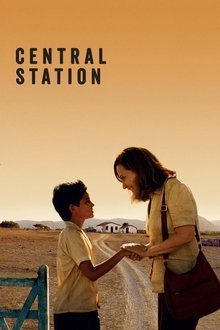
Central Station (1998)
An emotional journey of a former school teacher, who writes letters for illiterate people, and a young boy, whose mother has just died, as they search for the father he never knew.

The Bridges of Madison County (1995)
Photographer Robert Kincaid wanders into the life of housewife Francesca Johnson for four days in the 1960s.

Short Cuts (1993)
Many loosely connected characters cross paths in this film, based on the stories of Raymond Carver. Waitress Doreen Piggot accidentally runs into a boy with her car. Soon after walking away, the child lapses into a coma. While at the hospital, the boy's grandfather tells his son, Howard, about his past affairs. Meanwhile, a baker starts harassing the family when they fail to pick up the boy's birthday cake.

A Streetcar Named Desire (1951)
A disturbed, aging Southern belle moves in with her sister for solace — but being face-to-face with her brutish brother-in-law accelerates her downward spiral.

Finding Forrester (2000)
Gus Van Sant tells the story of a young African American man named Jamal who confronts his talents while living on the streets of the Bronx. He accidentally runs into an old writer named Forrester who discovers his passion for writing. With help from his new mentor Jamal receives a scholarship to a private school.

The Piano (1993)
When an arranged marriage brings Ada and her spirited daughter to the wilderness of nineteenth-century New Zealand, she finds herself locked in a battle of wills with both her controlling husband and a rugged frontiersman to whom she develops a forbidden attraction.
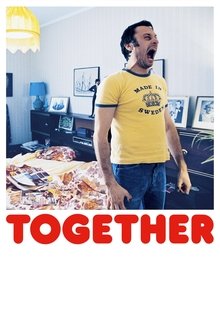
Together (2000)
Elisabeth leaves her abusive and drunken husband Rolf, and goes to live with her brother, Göran. The year is 1975 and Göran lives in a commune called Together. Living in this leftist commune Elisabeth learns that the world can be viewed from different perspectives.

Top Gun (1986)
For Lieutenant Pete 'Maverick' Mitchell and his friend and co-pilot Nick 'Goose' Bradshaw, being accepted into an elite training school for fighter pilots is a dream come true. But a tragedy, as well as personal demons, will threaten Pete's dreams of becoming an ace pilot.
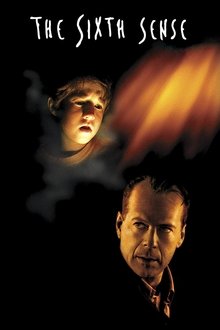
The Sixth Sense (1999)
Following an unexpected tragedy, child psychologist Malcolm Crowe meets a nine year old boy named Cole Sear, who is hiding a dark secret.

The Last Emperor (1987)
A dramatic history of Pu Yi, the last of the Emperors of China, from his lofty birth and brief reign in the Forbidden City, the object of worship by half a billion people; through his abdication, his decline and dissolute lifestyle; his exploitation by the invading Japanese, and finally to his obscure existence as just another peasant worker in the People's Republic.

Gone with the Wind (1939)
The spoiled daughter of a Georgia plantation owner conducts a tumultuous romance with a cynical profiteer during the American Civil War and Reconstruction Era.
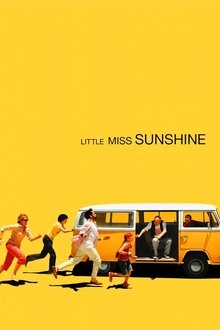
Little Miss Sunshine (2006)
A family loaded with quirky, colorful characters piles into an old van and road trips to California for little Olive to compete in a beauty pageant.
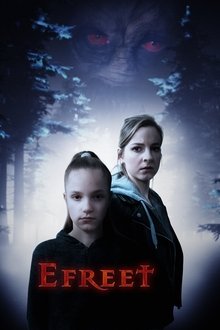
Efreet (2022)
Sophia, who recently turned 10, is haunted by mysterious nightmares. In her nightmares, a girl named Selinka keeps appearing, showing her things about her mother Tina's past that she shouldn't know anything about. Tina thinks that her ex-husband Markus is secretly seeing Sophia, although he is not allowed to have any contact with her. But when one evening Sophia mentions the name "Efreet", Dana (a close friend of the little family) knows that they are dealing with evil forces.

Wilbur Wants to Kill Himself (2002)
The strange comedy film of two close brothers; one, Wilbur, who wants to kill himself, and the other, Harbour, who tries to prevent this. When their father dies leaving them his bookstore they meet a woman who makes their lives a bit better yet with a bit more trouble as well.

Knockin' on Heaven's Door (1997)
Two young men, Martin and Rudi, both suffering from terminal cancer, get to know each other in a hospital room. They drown their desperation in tequila and decide to take one last trip to the sea. Drunk and still in pajamas they steal the first fancy car they find, a 60's Mercedes convertible. The car happens to belong to a bunch of gangsters, which immediately start to chase it, since it contains more than the pistol Martin finds in the glove box.
